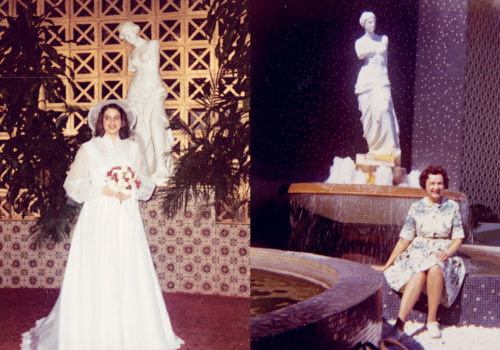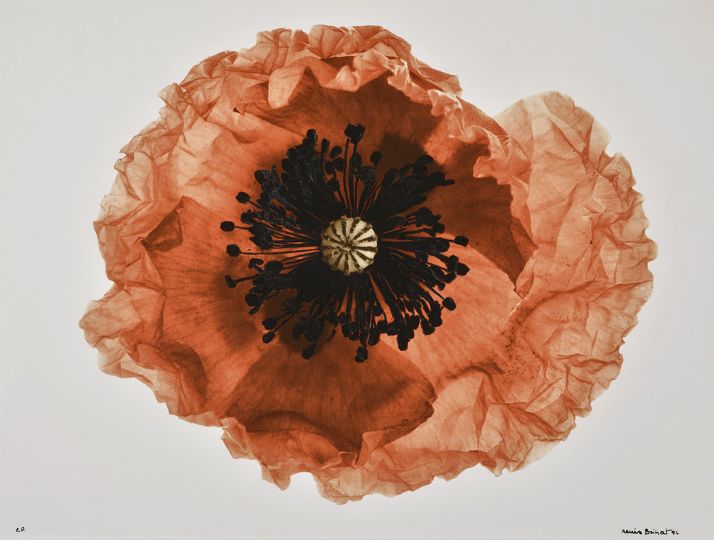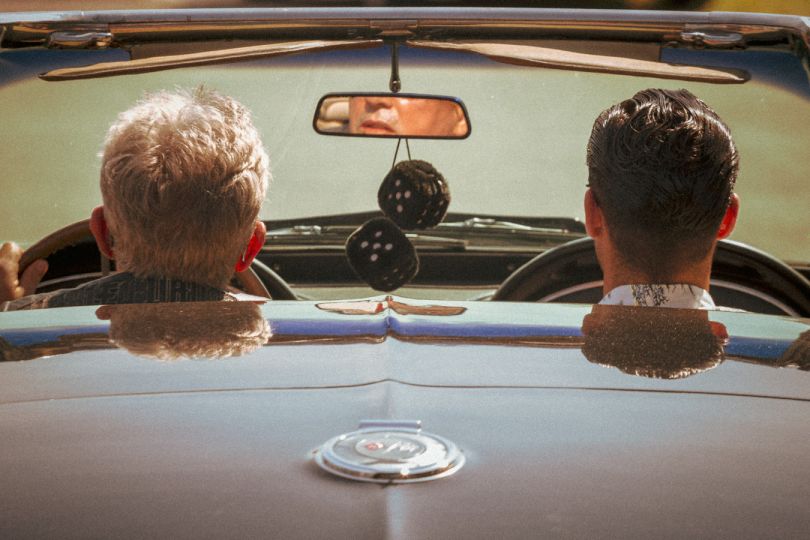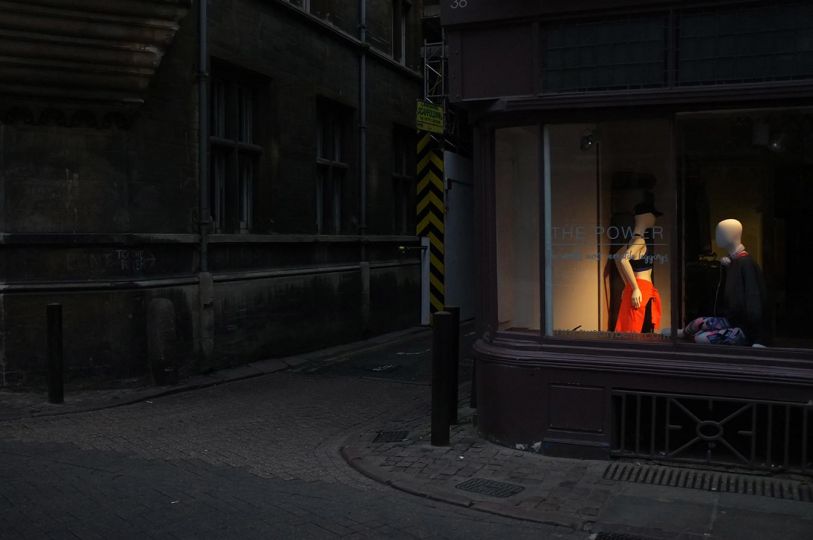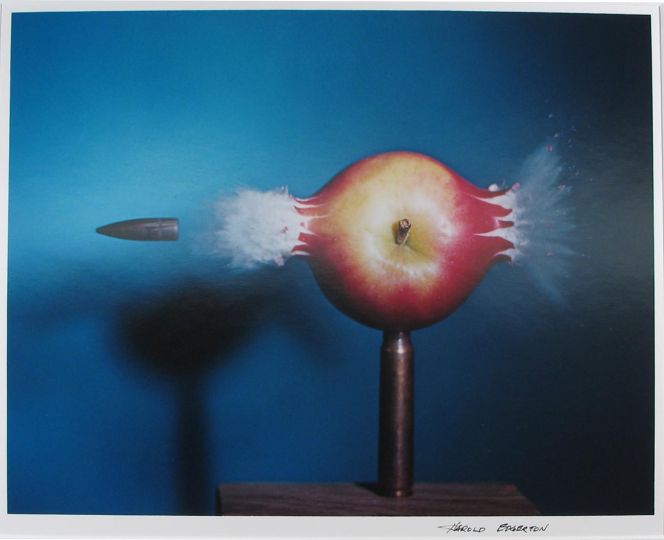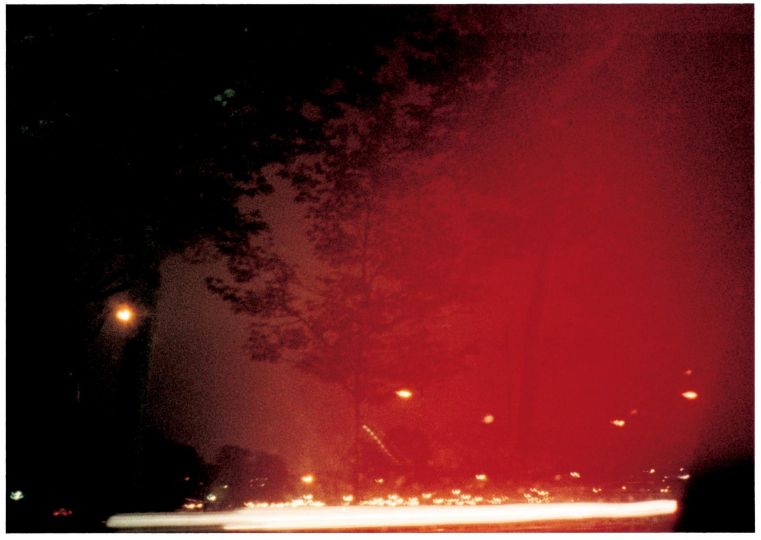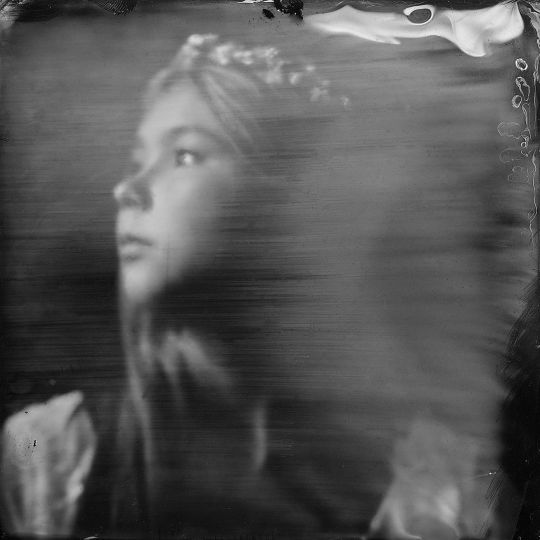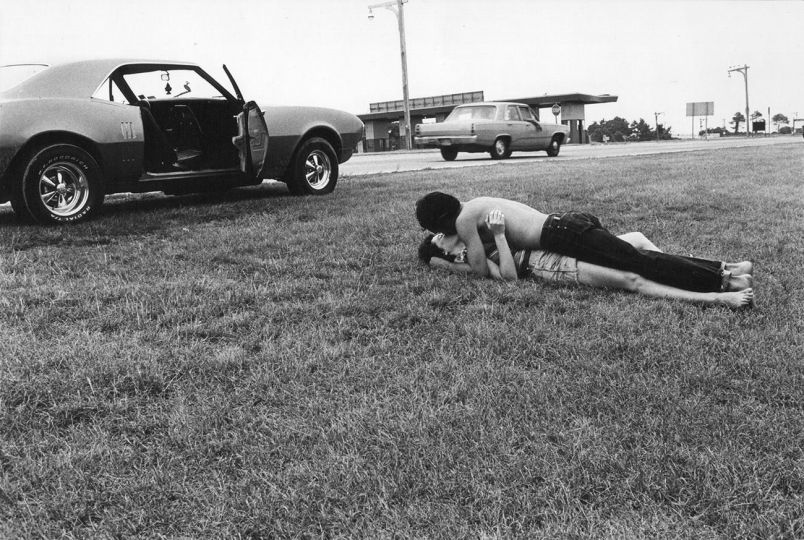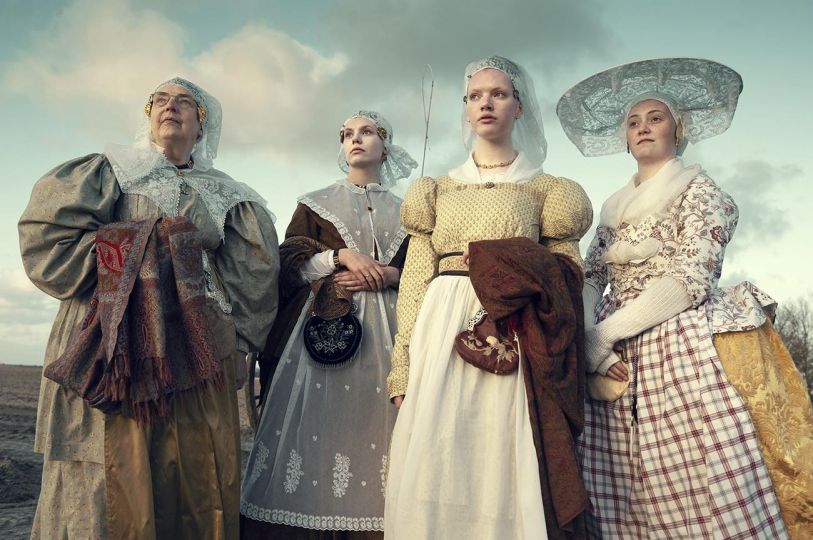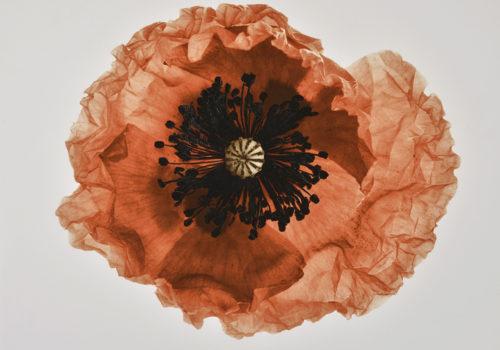With his vernacular collection, Jean-Marie Donat underlines the improbable imagery of the purest post-war capitalism. Curated by Audrey Hoareau, an acerbic exhibition to be seen until January 30 at 104 in Paris.
The guys proudly pose, the conqueror’s leg on the bumper of the jalopy, visibly swollen testosterone to be the owner of such an object, a symbol of individual achievement in the consumer society that flourished in the aftermath of the Second World War. A little further on, women also pose on cars, but there they are seated on them, legs outstretched, as triumphant pin-ups, where desire for consumerism and sexual desire of the possessor mingle.
A collection of postcards says a lot on the subject. The same naked chick reproduced in so many different landscapes, seaside vacation spots, like a huge masquerade where they try to sell us the mirage of boundless enjoyment.
MacDonald’s
Since the 1980s, the collector Jean-Marie Donat has enjoyed getting his hands on these incongruities, sensing very early on that in this kitsch was hiding something important to say about us, about our social practices at the time an all-powerful capitalism revealing behaviors that sometimes border on the absurd or emanate from older beliefs that are reborn in this pathetic form.
So come postcards touting cold buffets where sad waiters wait in front of huge tables in the dining room of a creepy hotel. Those which show the small trains of the small towns in so many grotesque replicas. Photographs of people posing shamelessly in front of a MacDonalds as if they were standing in front of a monument or that collection of images in which there is always a bottle of Coke somewhere. We also laugh a little further in front of the photos of Santa Claus with children who cry, sad heads of Santa Claus of whom they are madly afraid.
Anthropology
New cults with new gods and new totems. “Cathodic altar” as Jean-Marie Donat and Audrey Horeau jokes in the text of a cartel alongside photographs of televisions – in fact not only did people take photos of their cars, but also their television. This is what fascinates the collection presented, when it emphasizes that the core of these practices is associated with a human necessity associated with the ritual of a belief. Like those photographs of newlyweds wearing necklaces made with dollars that are supposed to bring prosperity.
If vernacular photography, the photograph taken by anonymous people at the time of mass access to the cameras in the 1960s and 1970s, is more and more fashionable at the moment, with editions here and there, gallery sales and exhibitions, this part of Jean-Marie Donat’s collection brilliantly points to something that we have not necessarily seen, its dimension both historical and anthropological, accentuating the value that we can give it.
Jean-Baptiste Gauvin
« Tout doit disparaître »
A look at the consumer society
Collection : Jean-Marie Donat
Curator: Audrey Hoareau
104 Paris
December 11, 2021 – January 30, 2022

